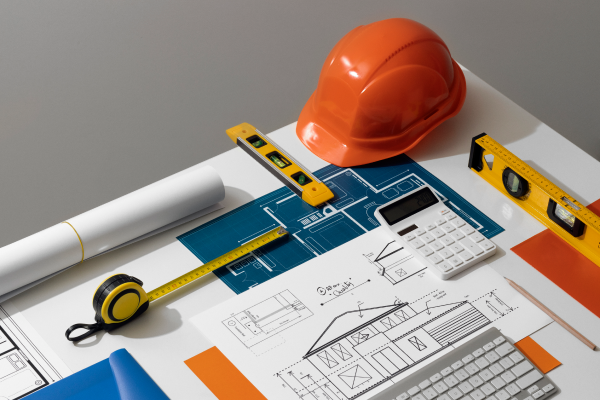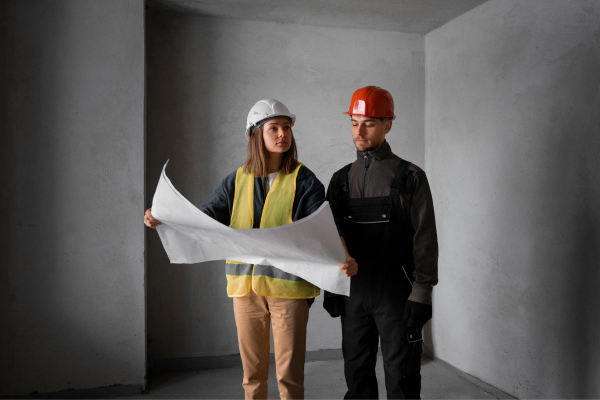Blogs
Navigating the process of obtaining a building permit in Abu Dhabi can be intricate, but with proper guidance, it becomes manageable. Whether you're planning a residential, commercial, or industrial project, understanding the key steps involved is crucial. In this guide, we'll walk you through the essential stages of securing a building permit in Abu Dhabi, with insights from experts at Abacus Engineering Consultancy.

The journey begins with thorough planning and preparation. Start by developing a clear project concept and conducting a feasibility study. This should encompass financial, technical, and environmental assessments to ensure the project's viability. Securing suitable land is also crucial, and it must comply with the intended use and local zoning regulations.
Engage qualified professionals, such as licensed architects and engineers, to create a design that meets local standards and regulations. Submit the preliminary design to the relevant authorities, such as the Abu Dhabi Municipality, for an initial review and feedback. This step is critical in aligning the project with local building codes and regulations.
To proceed, obtaining No Objection Certificates (NOCs) from various authorities is essential. The specific NOCs required depend on the project type and location. Common NOCs include:
Civil Defense: For compliance with fire safety regulations.
Department of Transport: For assessing traffic impact.
Abu Dhabi Urban Planning Council (UPC): For urban planning compliance.
Environmental Agency - Abu Dhabi (EAD): For environmental considerations.
Abu Dhabi Distribution Company (ADDC) and Abu Dhabi Water and Electricity Authority (ADWEA): For utility connections.
These approvals ensure the project meets the necessary safety, environmental, and infrastructural standards.

Once preliminary approvals are in place, develop detailed architectural, structural, mechanical, electrical, and plumbing designs. Submit these detailed plans, along with all necessary documentation and previously obtained NOCs, to the relevant authorities for final approval.
The submitted documents undergo a thorough technical review by the authorities. They may request modifications or additional information. Upon meeting all requirements, the building permit is granted, allowing the construction phase to commence.
Begin construction according to the approved plans. Regular inspections by the relevant authorities ensure compliance with the approved designs and safety standards. These inspections are critical for maintaining quality and adhering to regulations.
After construction is completed, a final inspection is conducted to verify compliance with all regulations and standards. If the building passes this inspection, a completion certificate is issued, permitting the building's occupation and use.
For larger projects, Building Information Modeling (BIM) may be required to streamline the design and approval process. Projects near cultural or heritage sites may also require additional approvals to protect these important areas.
The main regulatory authorities involved in the building permit process include:
Abu Dhabi Municipality: The primary regulatory body for building permits.
Abu Dhabi Urban Planning Council (UPC): Involved in planning and urban development.
Civil Defense: Ensuring compliance with fire safety standards.
Department of Transport: Reviewing traffic impact assessments.
Environmental Agency - Abu Dhabi (EAD): Overseeing environmental protection.
Contact Abacus Engineering Consultancy for more details.